Time for internal stability
Political dialogue and national unity are key to overcoming Pakistan’s security, economic, and political crises.
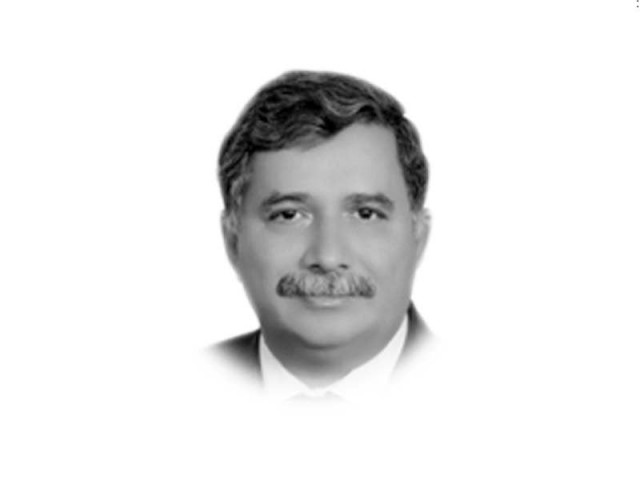
The recent declaration by Adviser to the Prime Minister on Law and Justice Barrister Aqeel Malik to form a committee to negotiate with PTI is a positive step toward defusing political tensions. Following the events of November 26 and the warning of civil disobedience by PTI Chairman Imran Khan, this development offers hope for calming the brewing political storm. On his part, Imran Khan has announced the formation of a five-member negotiation team, signaling readiness for dialogue. If these initiatives succeed, they could pave the way for much-needed political stability in Pakistan.
Political stability is crucial for ensuring internal stability which, in turn, requires addressing the grievances of the population as voiced by political parties. As the saying goes, "politics is the art of the possible", necessitating foresight and sustained efforts to bridge divides. This is particularly urgent as Pakistan grapples with the dual challenge of a resurging terrorist threat and other complex national and regional issues.
The unfolding crises in Syria, Iraq and Libya serve as cautionary tales for Pakistan. Nations with strong military structures and leaders who elevated their societies above tribal and sectarian divides have been fragmented along those very lines, destabilising entire regions. Pakistan, given its socio-political fabric, cannot afford to ignore these developments.
Additionally, the imposition of US sanctions on Pakistan's state-run missile development agency and three domestic vendors marks a significant shift in Washington's stance. This development highlights evolving geopolitical challenges that Pakistan must navigate carefully.
Relations with neighbouring India and Afghanistan also remain strained, compounding internal and external security concerns. On the domestic front, rising violence - whether the terrorist acts by non-state actors, tribal disputes, sectarian clashes or gender-based crimes - underscores the weakening of state institutions.
The problem is particularly acute in vast areas known as Katha, which have turned into "ungoverned spaces". The government's inability to enforce law and order in these regions reflects its limited control, exacerbating security challenges.
The third quarter of 2024 witnessed a sharp 90% increase in terrorist violence. A total of 722 people, including civilians, security personnel and militants, were killed, while 615 others were injured in 328 incidents. Alarmingly, 97% of these fatalities occurred in Khyber Pakhtunkhwa and Balochistan, marking the highest levels of violence in a decade.
The total fatalities for the first three quarters of 2024 have already surpassed the figures for the entire year of 2023, with 1,534 deaths compared to 1,523 last year. These statistics highlight the urgent need for a comprehensive counter-terrorism strategy and stronger state institutions to restore peace.
On the socio-economic front, while Pakistan has made progress in reducing poverty from 2001 to 2018, significant challenges remain. The World Bank's report for 2024 paints a mixed picture. Over one-third of school-age children are out of school, and nearly two-thirds of those in school suffer from learning deficiencies. Alarmingly, the stunting rate remains high at 40%.
Critical issues, such as recurrent fiscal and current account deficits, protectionist trade policies, unproductive agricultural practices, an unsupportive business environment, an oversized state presence in the economy and an unsustainable energy sector continue to hinder progress. The poverty rate for lower-middle-income households has risen to 40.5% in 2024, with an additional 2.6 million Pakistanis falling below the poverty line in the past year.
Conflict resolution through peaceful and inclusive political processes is key to stability. Pakistan must take lessons from its Vision 2025 policy document, which emphasises the importance of political stability and continuity of policies for national progress. The document cites examples from countries like Japan, South Korea, Singapore, Malaysia, China and Turkey, where political stability has been a common thread driving economic growth and development.
No nation can achieve sustainable development amid instability and chaos. Increased investment, economic revival and growth are impossible without peace and security. Wars, extremism and terrorism have exacted a heavy toll on Pakistan's society, economy and international standing.
Externally, Pakistan seeks "peace with dignity". Internally, the goal should be to create a secure environment where citizens' lives, properties, civil liberties and socio-economic rights are safeguarded. Only in such an environment can individuals live and prosper with freedom, respect and dignity, as guaranteed by the Constitution.
Dialogue is the need of the hour. Confidence-building measures and strict adherence to the rule of law must take precedence to prevent further polarisation. While Imran Khan has been granted bail in all cases, the filing of new cases or attempts to delay justice will only worsen the crisis. Political stability must be recognised as a prerequisite for socio-economic progress.
National reconciliation is no longer a choice but a necessity. Pakistan's history is rife with missed opportunities to resolve divisions through dialogue. This time, the government must rise above partisan interests and work collectively to address grievances.
Rebuilding trust in democratic institutions requires meaningful engagement, adherence to constitutional principles and protection of fundamental rights. The focus should shift from blame and division to unity and cooperation for the greater good of the nation.
Pakistan stands at a crossroads. The challenges it faces - whether political, economic or security-related - require collective will and decisive action. Reconciliation, dialogue and inclusive political processes are essential for charting a path toward stability and progress.
By prioritising internal stability through political unity, Pakistan can create the foundation for economic growth, improved governance and a peaceful society. Only then can the nation realise its full potential and secure a prosperous future for its citizens.









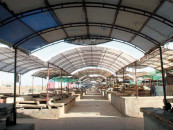
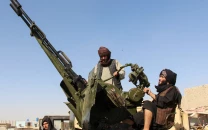
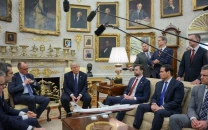
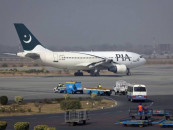


COMMENTS
Comments are moderated and generally will be posted if they are on-topic and not abusive.
For more information, please see our Comments FAQ